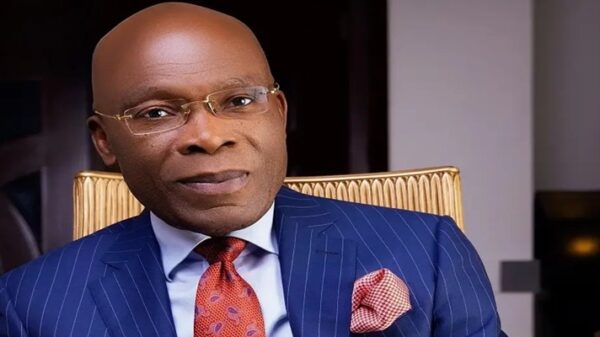By Odunayo Sanya, Executive Director, MTN Foundation
In the shadows of Nigeria’s bustling streets, a silent epidemic rages on, devouring the lives of our youth and shattering the dreams of families. Substance abuse has become a hydra-headed monster, its tentacles spreading everywhere, leaving in its wake a trail of broken lives, shattered hopes, and a nation in peril. The cries of mothers who have lost their children to the grip of addiction, the anguish of fathers who have seen their sons succumb to the allure of drugs, and the despair of communities ravaged by the consequences of substance abuse – these issues echo through the land, a haunting reminder of a crisis that threatens to consume us all.
The statistics are alarming; according to the National Drug Law Enforcement Agency (NDLEA), Nigeria has one of the highest drug use prevalence rates in the world, with over fourteen million people using psychoactive substances. It reveals that 14.3% of Nigerians between age 15 to 64 have used drugs at least once in their lifetime. But behind these numbers lies a more poignant reality – a generation lost to the abyss of addiction, their potential, creativity, and innovation sacrificed on the altar of substance abuse. The Nigerian dream, once full of promise and hope, is fast becoming a nightmare, as the scourge of substance abuse threatens to undermine economic growth.
As we grapple with the challenges of nation-building, substance abuse poses a clear and present danger to our collective future. It is a ticking time bomb, waiting to unleash its full fury on our society, our economy, and our very way of life. And yet, we are sleepwalking into this catastrophe, oblivious to the devastation that awaits us. It is time to wake up, to confront this monster head-on, and to reclaim our nation from the grip of substance abuse. The future of Nigeria depends on it.
The consequences of substance abuse are multifaceted. It affects not only the individual but also their families, communities, and the nation at large. Substance abuse affects the mental and physical health of individuals, leading to increased cases of depression, anxiety, and even suicide. It also affects relationships, leading to family breakdowns, and social isolation. The impact on society is equally devastating, affecting productivity, leading to reduced economic output, and increased healthcare costs. Substance abuse is also linked to increased crime rates, violence, and social unrest.
The economic impact of substance abuse cannot be overstated. It affects productivity, leading to reduced economic output, and increased healthcare costs. Substance abuse also affects the workforce, leading to absenteeism, presenteeism, and reduced employee performance. According to a study by the World Health Organisation (WHO), substance abuse costs Nigeria over N100 billion annually.
As we struggle to rebuild our economy and create opportunities for our youth, substance abuse siphons off precious resources and talent. The billions spent on rehabilitation, healthcare, and law enforcement could be invested in education, infrastructure, and innovation. Instead, these resources have been disbursed to mitigate the damage caused by substance abuse. We owe it to ourselves, our children, and future generations to act decisively against this menace.
Corporate organisations in the country have a vital role to play in supporting the fight against substance abuse. One way to do this is through funding. Substance abuse initiatives require significant financial resources to implement effective prevention, treatment, and support programs.
The MTN Foundation, through its Anti-Substance Abuse Program (ASAP), is already making a significant impact in this area. ASAP is a comprehensive program that aims to reduce the prevalence of substance abuse among young people in Nigeria. By providing funding and resources, MTN Foundation is helping to support rehabilitation centres, counselling services, and public awareness campaigns.
There are alternative ways to support the fight against substance abuse, corporate organisations can lend their expertise to awareness and sensitization campaigns and provide in-kind donations. For example, they can provide venues for community events, expertise in areas of marketing and communications, and printing and distribution services. Additionally, corporate organisations can leverage their networks and influence to raise awareness about the dangers of substance abuse and promote initiatives aimed at preventing it.
At an internal level, corporate organisations should implement workplace policies and programs that prevent and address substance abuse. This can include employee assistance programs, drug testing, and substance abuse education and training. By creating a safe and supportive work environment, corporate organisations can help employees struggling with addiction to seek help and overcome their dependence on drugs.
In the United States, companies like CVS Health and Walmart have taken a stand against drug abuse by implementing programs to prevent opioid overdose and misuse. CVS Health, for example, has launched a program to provide naloxone, a medication that reverses opioid overdose, to patients without a prescription. Walmart, on the other hand, has implemented a system to track and prevent suspicious prescriptions, and provides disposal sites for unused medications.
In Europe, companies like IKEA and H&M are supporting the fight against drug abuse by partnering with organisations that provide treatment and support services. IKEA, for example, has partnered with the Swedish organisation, Länkarna, to provide job training and employment opportunities to people recovering from addiction. H&M has partnered with the UK-based organisation, Addaction, to provide funding and resources for treatment and support services.
Other companies, like Google and Facebook, are using their technology and platforms to support the fight against drug abuse. Google, for example, has launched a program to provide accurate and reliable information on substance abuse and treatment options through its search engine. Facebook has launched a program to provide resources and support services to people struggling with addiction, and partners with organisations to provide funding and expertise to support the fight against drug abuse.
Guinness Nigeria launched the ‘Drink Responsibly’ campaign, aimed at promoting responsible drinking habits and reducing the incidence of substance abuse. The company has also partnered with the Nigerian government and other organisations to support initiatives aimed at preventing and treating substance abuse. For example, Guinness Nigeria has provided funding and resources for the establishment of rehabilitation centres and counselling services for those struggling with addiction. These efforts demonstrate the commitment of Nigerian companies to supporting the fight against drug abuse and promoting a healthier and more responsible society.
The government, through the NDLEA, should encourage the private sector to get more involved in this fight. The agency has already shown commitment to this, even in the partnership with MTN Foundation on the ASAP programme. MTN’s involvement has been substantial, including advocacy walks, stakeholder conferences, and the inclusion of white papers. In 2024, the programme reached 87,000 students and trained 1,440 teachers across Nigeria. More such partnerships are essential because this is a collective fight. There is a need to undertake more of such partnerships because it is everyone’s fight .
As we confront the scourge of substance abuse in Nigeria, it is heartening to see corporate organisations stepping up to the plate. By providing funding, resources, and expertise, companies like MTN and Guinness are helping to stem the tide of addiction and despair that threatens to engulf our youth. But this is not just a moral imperative – it is an economic and social one too. For if we fail to act, we risk losing an entire generation to the abyss of substance abuse, with devastating consequences for our families, communities, and nation.
So let us salute these corporate champions and urge others to follow their lead. Together, we can create a Nigeria where our young people are empowered to reach their full potential, free from the shackles of addiction. A Nigeria where families are not torn apart by substance abuse, and communities are not ravaged by its consequences. It is a future worth fighting for, and one that we can achieve if we work together. The time to act is now – let us join forces to create a brighter, healthier future for ourselves, our children, and our nation.
![]()






























































